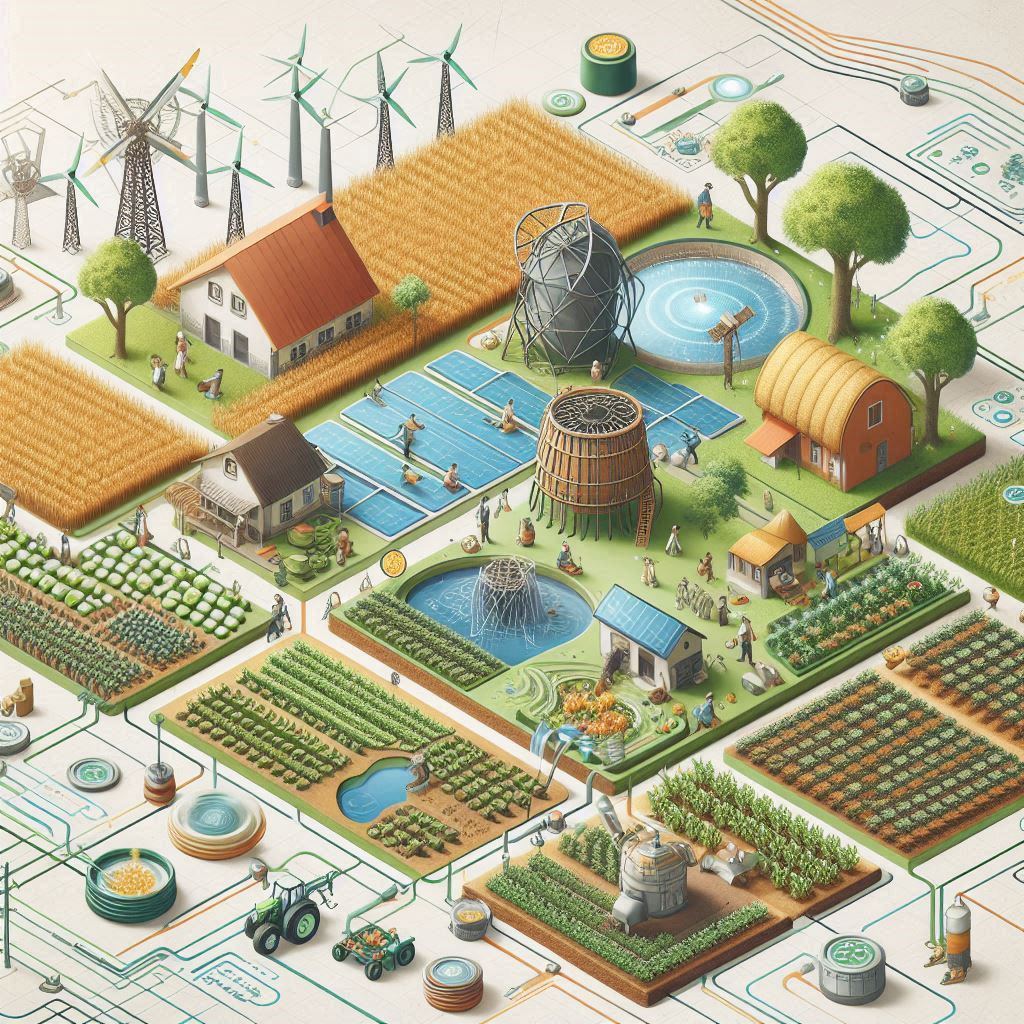Integrating Traditional Wisdom with Modern Farming Technology: A Green Lover’s Guide

In an age where technological advancements have transformed almost every aspect of our lives, it’s crucial to remember the value of age-old wisdom, especially in farming. Integrating traditional farming practices with modern technology offers a sustainable path forward, ensuring that agriculture remains productive, environmentally friendly, and culturally rich. For green lovers in Sri Lanka, this fusion promises not only to enhance productivity but also to preserve our rich agricultural heritage.
Historical Context of Traditional Farming in Sri Lanka
Ancient Practices
Sri Lankan agriculture has deep roots in traditional practices that have been handed down through generations. Some of these practices include:
- Crop Rotation: This method involves growing different types of crops in the same area across seasons. It helps improve soil health and reduce pest and disease buildup.
- Organic Manures: Using natural compost and green manures to enrich the soil.
- Polyculture: Growing multiple crop species together to enhance biodiversity and resilience against pests.
Cultural Significance
Traditional farming isn’t just about methods; it’s a way of life. These practices are deeply embedded in the cultural and spiritual fabric of rural Sri Lanka. They reflect a symbiotic relationship with nature, fostering respect and reverence for the land.
Modern Farming Technologies
Technological Advancements
With the advent of technology, farming has seen significant transformations. Some of the notable advancements include:
Biotechnology: Genetic modifications and biotechnological methods to enhance crop yield and resistance to pests.
Precision Agriculture: Utilizes GPS and IoT to optimize field-level management with regard to crop farming.
Smart Irrigation Systems: Automated watering systems that use sensors to manage water supply efficiently.
Benefits and Challenges
Modern technologies offer numerous benefits such as:
- Increased Productivity: Higher crop yields and efficiency.
- Resource Management: Better management of water, soil, and fertilizers.
- Pest Control: Advanced methods to manage pests and diseases. However, these technologies also bring challenges like:
- High Costs: Initial investment and maintenance can be expensive.
- Knowledge Gap: Requires training and understanding of new technologies.
- Environmental Concerns: Potential negative impacts if not managed sustainably.
Synergy Between Traditional Wisdom and Modern Technology
Complementary Practices
The integration of traditional practices with modern technology can yield remarkable benefits:
- Organic Manures & Precision Farming: Using organic manures alongside precision agriculture tools can optimize soil health and crop productivity.
- Polyculture & Smart Irrigation: Combining polyculture with smart irrigation systems can improve water efficiency and biodiversity.
- Crop Rotation & Biotech Seeds: Using crop rotation practices with genetically modified seeds can enhance resilience to pests and diseases.
Case Studies
Several successful integrations demonstrate the potential of this synergy:
- Sri Lanka’s Rice Farming: Integrating traditional rice varieties with modern pest management techniques has improved yields while preserving biodiversity.
- Organic Tea Cultivation: Combining organic manures with modern soil health monitoring technologies has enhanced the quality and yield of Sri Lankan tea.
Environmental and Economic Benefits
Sustainability
Integrating traditional wisdom with modern technology promotes sustainability in several ways:
- Soil Health: Organic manures and crop rotation improve soil structure and fertility.
- Biodiversity: Polyculture practices enhance biodiversity, making ecosystems more resilient.
- Reduced Chemical Use: Lower dependence on chemical fertilizers and pesticides.
Economic Impact
This integration also has significant economic benefits:
- Cost Efficiency: Reduces the cost of chemical inputs and increases long-term productivity.
- Market Value: High-quality, sustainably grown produce fetches better prices in local and global markets.
- Employment: Creates opportunities for local communities, preserving traditional knowledge and skills.
Challenges and Barriers
Sociocultural Factors
Adopting integrated practices requires overcoming sociocultural barriers:
- Traditional Mindsets: Resistance to change from conventional practices.
- Community Engagement: Involving local communities and gaining their trust and participation.
Economic Constraints
Economic challenges include:
- Initial Investment: High upfront costs for new technologies.
- Access to Funding: Limited access to financial resources for small-scale farmers.
Policy and Regulatory Issues
Government policies play a crucial role in facilitating integration:
- Supportive Policies: Encouraging sustainable practices through subsidies and incentives.
- Regulations: Ensuring the safe and ethical use of modern technologies.
Future Directions and Research Needs
Education and Awareness
To promote the integration of traditional wisdom with modern technology, targeted education and awareness programs are essential:
- Farmer Training Programs: Workshops and training sessions on the benefits and implementation of integrated practices.
- Consumer Awareness: Educating consumers on the importance of sustainable farming.
Research Gaps
Continued research and innovation are vital for the future:
- Innovative Solutions: Developing new methods to integrate traditional practices with modern technology.
- Long-Term Studies: Conducting long-term studies to assess the environmental and economic impacts of integrated farming.
Conclusion
Integrating traditional wisdom with modern farming technology is not just a blend of old and new; it’s a sustainable approach that respects our past while embracing the future. For Sri Lanka’s green lovers, this integration promises a farming revolution that is both productive and respectful of nature’s balance. By combining the best of both worlds, we can ensure a thriving agricultural sector that benefits farmers, consumers, and the environment alike.
At vagaa.lk, we are dedicated to promoting sustainable farming practices that honor our rich heritage while leveraging cutting-edge technologies. Join our community of green enthusiasts and farmers to learn more about integrating traditional wisdom with modern farming techniques. Visit vagaa.lk for resources, success stories, and expert advice. Together, we can cultivate a greener, more sustainable future for Sri Lanka.
Facebook – https://www.facebook.com/vagaalk
Twitter – https://x.com/vagaalk
YouTube – https://www.youtube.com/@LK-CEO
